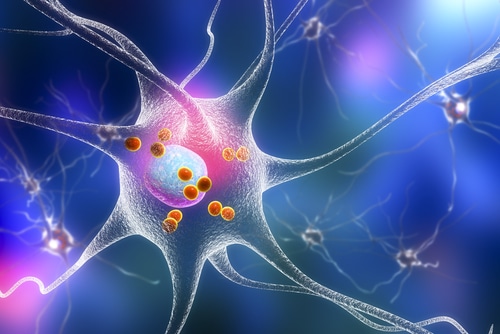Typically the transfer if information from gene to protein is carefully controlled being biologically proofread and corrected for errors to avoid production of improper proteins. Ankrd16 protein has been observed to rescue specific Purkinje cell neurons which die when proofreading fails. Those nerve cells in the cerebellum incorrectly activate amino acid serine which is improperly incorporated into proteins and causes aggregation without normal levels of Ankrd16 proteins.
Ankrd16 acts as a layer of machinery key to prevention of severe pathologies arising from defects via acting as a safety sponge capturing incorrectly activated serine as a failsafe to prevent the amino acid from being incorporated into proteins improperly, which is helpful when the ability of the nerve cells to proofread and correct mistakes declines.
Ankrd16 levels as normally low in Purkinje cells making them vulnerable to defects, elevating Ankrd16 levels protects the cells from dying. Removing Ankrd16 from other neurons in model mice with proofreading deficiency was observed to cause widespread buildup of abnormal proteins leading to neuronal death.
Researchers noted that few modifier genes of mutations have been identified such as Ankrd16 with a modifier based mechanism for understanding underlying pathology of neurodegenerative diseases which show promise of one day being route to understanding disease development and development of therapies.




